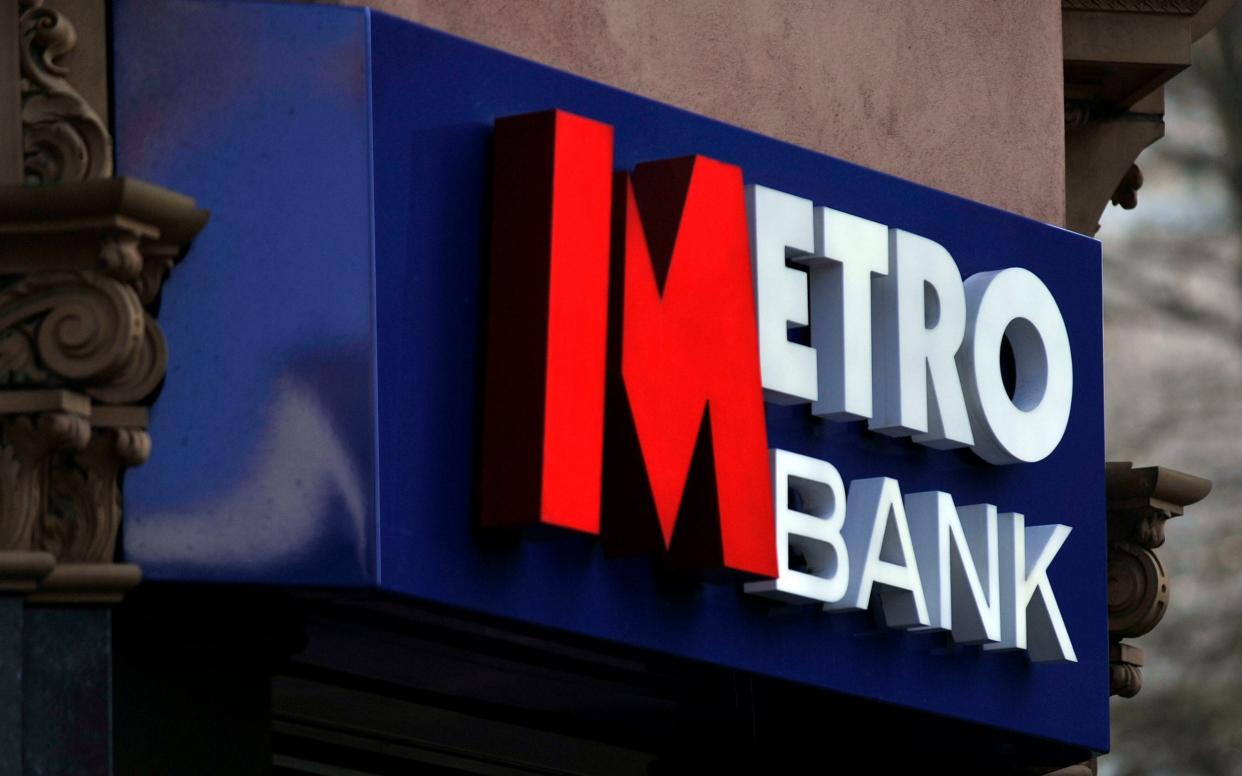Metro Bank sinks to £241m loss and tells staff to keep working from home

Embattled Metro Bank has suffered a huge loss as it prepares for a slump in house prices and surging unemployment.
The high street lender - which is fighting to revive its fortunes following a loans scandal last year - fell £241m into the red for the six months to June, down from a £3.4m profit a year earlier.
Metro bosses were forced to set aside £112m to cover the expected costs of loans going sour as legions of crisis-hit families and businesses find it impossible to pay back what they owe. Its economists expect property prices to drop 14.6pc this year and 4.9pc the next before staging a recovery, with unemployment climbing as high as 8.4pc.
Shares in the bank fell 8pc on Wednesday afternoon, valuing Metro at £185m - less than its half-year loss.
Investors have suffered a 95pc stock crash since the bank's 2016 float, when it was valued at £1.6bn and bosses hoped to enter the FTSE 100 within three years.
Chief executive Daniel Frumkin is trying to turn the lender around after a furore when Metro was forced to admit it had miscalculated the riskiness of some property loans.
The scandal sparked widespread concerns over how the bank was run and led to the exits of its founder Vernon Hill and then-boss Craig Donaldson. Regulators are still investigating the loans error.
Mr Frumkin said it is too early to tell how much the pandemic will affect a turnaround push announced in February, and added that the team will continue to focus on cutting costs.
The lender had already heavily dialled down expansion plans before Covid struck, and said it will cut costs by moving staff to cheaper office space.
Mr Frumkin, a former Royal Bank of Scotland and Northern Rock banker who took on the job this year, said that the threat of a second wave means staff will not return to the office until after the winter flu season next year. Even then they will only be in for two to three days a week, he said.
Bank of England Governor Andrew Bailey told Tory MPs last month that workers must be encouraged back to their offices to support cafes, restaurants, bars and shops.
However, big banks have been cheered by the success of home working and shown little interest in a return to normal.
Metro, which celebrated its ten-year anniversary last week, reported its half-year results just days after it said it was buying online lender Ratesetter for just £2.5m.
The deal marks a precipitous slump in value for Ratesetter, one of the biggest so-called peer-to-peer lenders that allows individuals to lend directly to businesses and others without going through a bank. Its expertise in personal loans could boost Metro as it seeks to expand into new areas.

